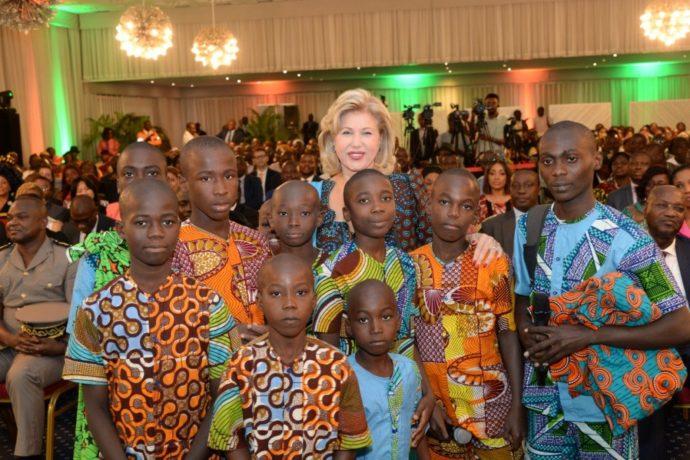"The challenge of effectively implementing this action plan, as you know, is crucial (...) It concerns each of us, because it is about the future of thousands of children, and for them, no compromise must be accepted. As for me, I am personally committed to this and I will work tirelessly to stop child trafficking in our country." These were the words of Dominique Ouattara, First Lady of Côte d'Ivoire, during the official presentation of the 2019-2021 National Action Plan (NAP) to Combat Trafficking, Exploitation and Child Labour.

This update of the NAP, which aims to significantly reduce the Worst Forms of Child Labour (WFCL) by 2025, is a synergy of the reflections of several actors. It is structured around four main strategic axes of prevention, assistance and protection of victims, prosecution and repression of traffickers, and coordination and monitoring & evaluation.
It also addresses root causes and incorporates new challenges, such as the issue of addressing child labour in classified forests, the effective implementation of agreements signed with border countries to combat cross-border child trafficking, and the issue of the cocoa supply chain traceability. As indicated by Patricia Yao, Executive Secretary of the National Committee for the Monitoring of Actions to Combat Child Trafficking, Exploitation and Labour (CNS), the updated NAP, with an estimated budget of about 132 million US dollars, allows for "a move from a sectoral project approach to a comprehensive approach that integrates the fight against child labour into the Government's social programmes". Presenting the assessment of the actions carried out under the 2015-2017 NAP, she stated that they were completed to 73.96% when compared to the overall objectives of the plan.
And, as the First Lady added, "thanks to all these actions, our country's efforts have been recognized by the American Government. Since 2016, the annual reports of the United States Department of Labor on the worst forms of child labor have mentioned that 'Côte d'Ivoire has made significant progress towards the elimination of the worst forms of child labor'. In addition, these reports reclassify our country into category 2, which corresponds to states that are making significant efforts to eliminate child labour."
Tim McCoy, Vice President of the World Cocoa Foundation (WCF), said the "NAP 2019-2021 takes into account recent and previous achievements". This, he suggested, "reassures" them. The Deputy Regional Director of the International Labour Office (ILO), Mr. Peter Van Rooij, for his part, expressed his satisfaction with the commitment of his organisation and that of UNICEF. He announced the support of the two institutions for the effective implementation of this 3rd National Plan to Combat Trafficking, Exploitation and Child Labour presented to the public. A commitment also shared by Mr. Jean Marc Yacé, mayor of the municipality of Cocody, who promised to include the issue at the next UVICOCI (Union of Cities and Municipalities of Côte d'Ivoire) meeting and "make it widely known to the people in his territory".
The event was held on 25 June in Abidjan, in the presence of several government ministers, the diplomatic corps, representatives of the cocoa and chocolate industries, stakeholders working in the field of cocoa and child protection, as well as community and religious leaders.
